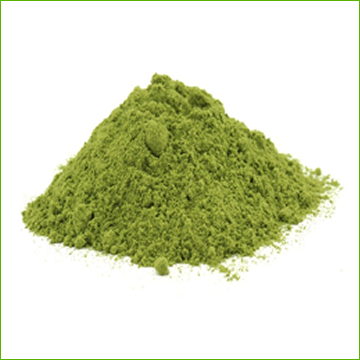
Native to India, Moringa has been used worldwide to address malnutrition. It is a nutritionally complex whole food naturally abundant in B vitamins, and amino acids. Daily use of Moringa can help to restore your imbalances and add concentrated super food nutrition to your diet.
· Single Ingredient
· Alkalizing
· Energizing
Recommended Use: As a dietary supplement, mix ½ teaspoon with water, juice, tea or blend into your smoothie!
Moringa oleifera is a plant that has been praised for its health benefits for thousands of years.
It is very rich in healthy antioxidants and bioactive plant compounds.
So far, scientists have only investigated a fraction of the many reputed health benefits.
Here are some health benefits of Moringa oleifera that are supported by scientific research.
Moringa oleifera Is Very Nutritious
Moringa oleifera is a fairly large tree native to North India.
It goes by a variety of names, such as drumstick tree, horseradish tree or ben oil tree.
Almost all parts of the tree are eaten or used as ingredients in traditional herbal medicines.
This especially applies to the leaves and pods, which are commonly eaten in parts of India and Africa
Moringa leaves are an excellent source of many vitamins and minerals. One cup of fresh, chopped leaves (21 grams) contains (2Trusted Source):
Protein: 2 grams
Vitamin B6: 19% of the RDA
Vitamin C: 12% of the RDA
Iron: 11% of the RDA
Riboflavin (B2): 11% of the RDA
Vitamin A (from beta-carotene): 9% of the RDA
Magnesium: 8% of the RDA
In Western countries, the dried leaves are sold as dietary supplements, either in powder or capsule form.
Compared to the leaves, the pods are generally lower in vitamins and minerals. However, they are exceptionally rich in vitamin C. One cup of fresh, sliced pods (100 grams) contains 157% of your daily requirement.
The diet of people in developing nations sometimes lacks vitamins, minerals and protein. In these countries, Moringa oleifera can be an important source of many essential nutrients.
However, there is one downside: Moringa leaves may also contain high levels of antinutrients, which can reduce the absorption of minerals and protein
(3Trusted Source, 4).
Another thing to keep in mind is that taking Moringa oleifera supplements in capsules won’t supply a large number of nutrients.
The amounts are negligible compared to what you consume if you eat a balanced diet based on whole foods.
SUMMARY
Moringa leaves are rich in many important nutrients, including protein, vitamin B6, vitamin C, riboflavin and iron.
 Canada & USA Wide Shipping
Canada & USA Wide Shipping
